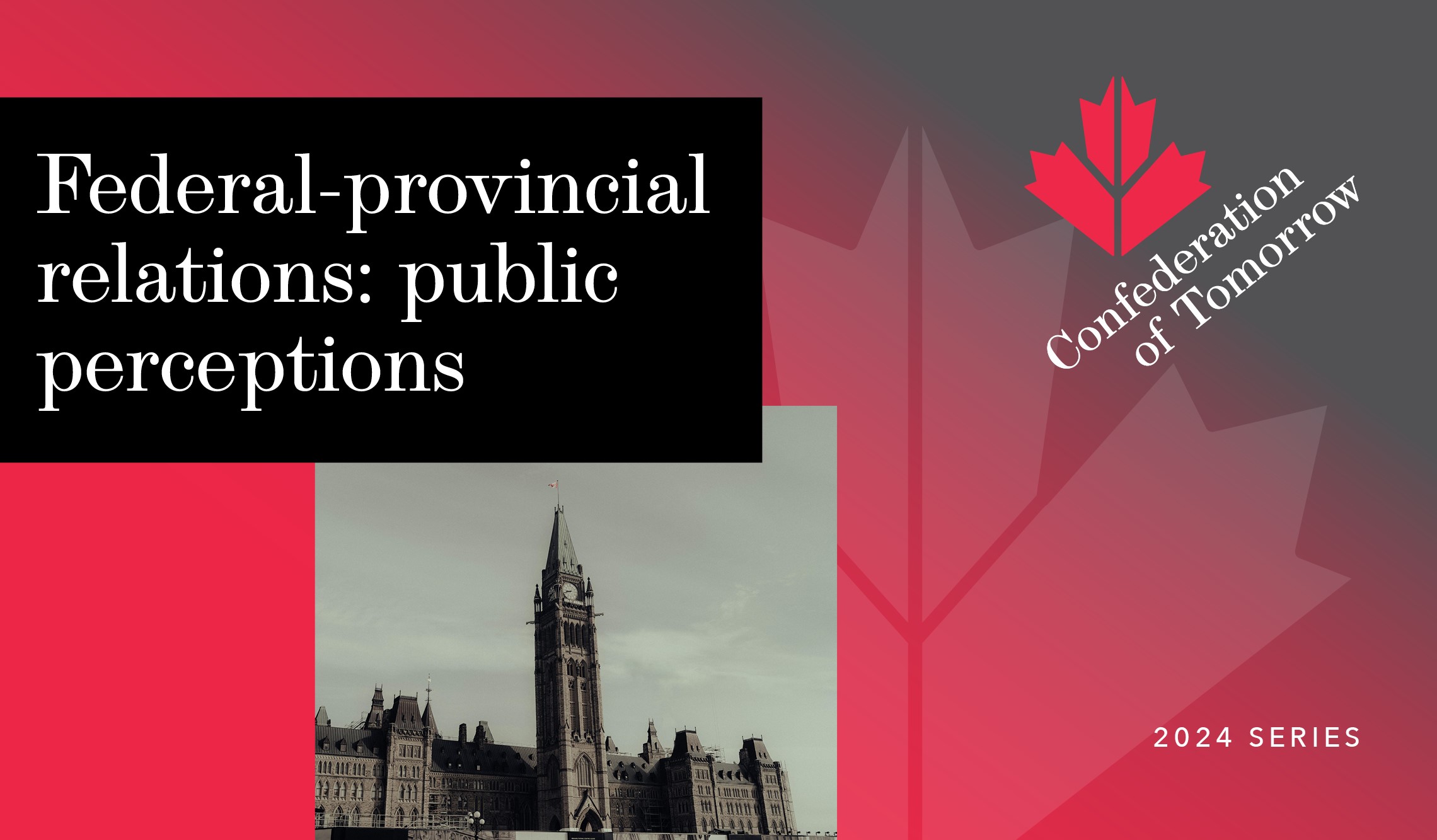Federal-provincial relations: public perceptions

Federal-provincial relations: public perceptions
The 2024 Confederation of Tomorrow survey explores public perceptions of the state of federal-provincial relations, and how these have changed over time.
The study finds that views on whether federal and provincial governments are working well together have not changed that much over the past two decades. However, compared to the early 2000s, Canadians are less likely to blame both governments equally when conflict arises, and more likely to take sides by blaming either the federal government or their provincial government.
The study identifies several other notable trends. One is the narrowing of the gap between the opinions of Quebecers and other Canadians – not because Quebecers view federalism more positively, but because views outside the province have become more negative. Another is the consistently more negative assessment of the federal system among residents of the Prairie provinces, particularly Saskatchewan and Alberta. A third is the more negative assessment among older Canadians compared to their younger counterparts. In Quebec, this pattern represents a change compared to earlier periods; while, previously, younger Quebecers held more negative views of federalism than their older counterparts, the reverse is now the case.
Key findings:
- Over one in two Canadians say that the federal and provincial governments are not working well together.
- The proportion that says the federal and provincial governments are working well together has dropped significantly since 2003 in Atlantic Canada and in the Prairie provinces.
- Whereas younger Quebecers previously held a more negative assessment of federal-provincial relations than their older counterparts, the reverse is true today.
- The proportion of Canadians blaming both the federal government and their provincial or territorial government equally for intergovernmental conflict is lower than it was 20 years ago, while the proportions blaming either the federal government or their provincial or territorial government have both increased.
- Canadians are more likely to favour a greater decentralization of powers in the federation than they are to favour a transfer of powers from their province or territory to Ottawa.
- Over the past few years, the proportion of Canadians outside Quebec who favour their province taking charge of many of the things the federal government currently does has increased. As a result, there is now much less of a gap between the preferences of Quebecers and those of other Canadians on this question.
- In most jurisdictions, the proportion agreeing that federalism has more advantages than disadvantages outweighs the proportion disagreeing – but there are two exceptions: Saskatchewan and Alberta.
- In 2003, Canadians outside Quebec were much more likely than Quebecers to agree that federalism has more advantages than disadvantages for their province or territory; today they are only slightly more likely to agree.
The Confederation of Tomorrow surveys give voice to Canadians about the major issues shaping the future of the federation and their political communities. They are conducted annually by an association of the country’s leading public policy and socioeconomic research organizations:the Environics Institute for Survey Research, the Centre of Excellence on the Canadian Federation, the Canada West Foundation, the Centre D’Analyse Politique – Constitution et Fédéralisme, the Brian Mulroney Institute of Government and the First Nations Financial Management Board.
The 2024 study consists of a survey of 6,036 adults, conducted between January 13 and April 13, 2024 (82% of the responses were collected between January 17 and February 1); 94% of the responses were collected online. The remaining responses were collected by telephone from respondents living in the North or on First Nations reserves.
For more information, contact Dr. Andrew Parkin or the Environics Institute for Survey Research.
This project benefits from the financial support of the Research Support Program of the Secrétariat du Québec aux relations canadiennes (SQRC) / Ce projet bénéficie de l’appui financier du Programme d’appui à la recherche du Secrétariat du Québec aux relations canadiennes (SQRC).

Survey materials:
Report: Federal-provincial relations: public perceptions
Like what you're reading? With our bi-monthly e-newsletter, you can receive even more with the latest details on current projects, news, and events at the institute.
Subscribe